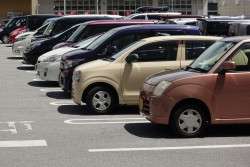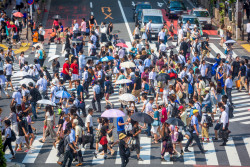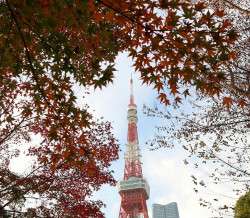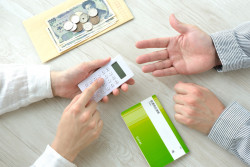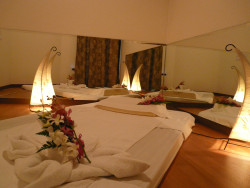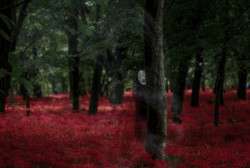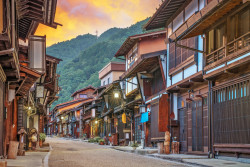
Originally published on metropolis.co.jp on September 2012
OUCH!
- McDonald’s Japan was forced to recall 7 million promotional tumblers because of a defect that caused customers to suffer cuts “from protruding shards of glass.”
- A plastic surgeon in Tokyo was found guilty of causing the death of a 70-year-old patient during a liposuction procedure. Apparently, the doc failed to “insert the suction tube to an appropriate depth or at an appropriate angle, causing injuries to [the victim’s] intestines and other organs.”
- When asked why he fled the scene of an accident in which his car rear-ended a motorcycle, a 50-year-old fire department official in Takamatsu said, “I was afraid everyone would find out I was drunk.”
- Police say a 14-year-old boy in Iwate used a baseball bat to beat his parents and 8-year-old sister while they slept. The boy’s grandmother and another sister were unharmed, and the three victims are in stable condition.
BLASTS FROM THE PAST
- While searching on Iwo Jima for the remains of soldiers killed during World War II, government investigators found a radio transmitter that’s believed to have sent “the final telegram before the Imperial Japanese Army made the last organized assault on US troops.”
- Meanwhile, officials at the Japanese Disabled Veterans Association announced the group will be dissolved next year. Membership has dwindled from a peak of 360,000 in 1955 to just 5,100 today, and the average age of members is 91.
- The only surviving copy of a 7th-century Chinese medical text was discovered in Chiba. The book, which contains “prescriptions for medicines to treat 30 maladies, including headaches and infections,” is believed to originally have been acquired by a samurai family in Yokohama.
- The Polar Science Museum in Tachikawa is offering a cool hands-on exhibit for late summer: a 70kg block of ice hauled back from Antarctica by a Japanese research team.
BRIGHT IDEAS
- A professor at Fukushima Prefecture is planning to attach radiation detectors to wild monkeys to determine the spread of radioactive contamination in local forests.
- Not to be outdone, a group of 25 people in a coastal area of Shizuoka released 1,000 balloons into the air “to predict the spread of radioactive materials from the nearby Hamaoka Nuclear Power Plant in the event of a disaster.”
- Among the activities being held to lift the spirits of male evacuees from the March 11 disaster are “cooking seminars, shogi and simply getting together to chat.”
- Daimaru department store unveiled a retail space at Tokyo station that offers 1,000 varieties of bento from 55 food companies.
OFFICIAL BUSINESS
- A police inspector in Niigata is suspected of padding his caseload resume by including crimes that were “discovered during investigations but not reported to prosecutors.”
- Meanwhile, police officials in Wakayama are investigating a forensic researcher on suspicion that he forged documents relating to the analysis of evidence in criminal cases.
- Well, at least there’s something we can all agree on—governors of all 47 prefectures are opposed to the US military’s planned deployment of MV-22 Osprey transport aircraft to Okinawa.
- Meanwhile, officials in 24 prefectures say they have not made an effort to arrange for the transfer of nursing-home residents in the event of a major disaster, despite the central government urging them to do so.
FINDINGS
- Scientists at the Primate Research Institute at Kyoto University have discovered that chimpanzees from different regions of Africa taste food differently.
- Researchers at JAXA have determined that the Arctic ice cover shrank at its fastest rate ever in August this year.
- A government survey found that fewer people are concerned about being burglarized than they are “about bank transfer scams and other fraud.”
- Headline of the Week: “Online Search System for Epileptologists Launched in Japan” (via Jiji)
THE HIT LIST

- Japan placed fifth in Bloomberg news agency’s global ranking of “healthiest countries,” trailing only Singapore, Italy, Australia and Switzerland. The survey took into account factors such as “life expectancy, cigarette smoking rates [and] mortality.”
- An international team of researchers awarded Japan a 69 percent score in terms of “ocean health,” which measures such qualities as biodiversity, commercial fishing and tourism. The average score was 60, with Jarvis Island claiming the top spot (86) and Sierra Leone the lowest (36).
- The infrastructure ministry says 21,670 streetlights—7.5 percent of the nationwide total—are still switched off at night as part of post-disaster electricity-saving efforts.
- A survey of hedge fund managers found that “investors see the yen as the most overvalued currency in the world.”
FOREIGN RELATIONS
- It was reported that even though exports of Japanese automobiles slumped by 7.7 percent overall last year, car exports to Russia shot up 43.1 percent. Auto execs are looking forward to even better times now that Russia has joined the WTO.
- Don’t believe the hysterical headlines—relations between China and Japan are just fine. Direct investment in China by Japanese companies has surged more than 19 percent so far this year, and the number of Chinese travelers visiting Japan topped 200,000 a month in July for the first time ever.
- A local nonprofit group is organizing Japan’s first trade fair devoted to halal products. Among the items on display will be “pepper flavored with yuzu… Chinese dumplings that use minced fish from Saga Prefecture as fillings, and curry powder.”
- The science ministry said it’s researching better ways to locate minerals on the ocean floor. It will then share its findings with private industry in the hopes that the substances can be extracted for commercial use.
Compiled from reports by AP, Japan Today, The Japan Times, Jiji, The Tokyo Reporter, Japan Probe, The Mainichi, Daily Yomiuri, AFP, Reuters and Kyodo
